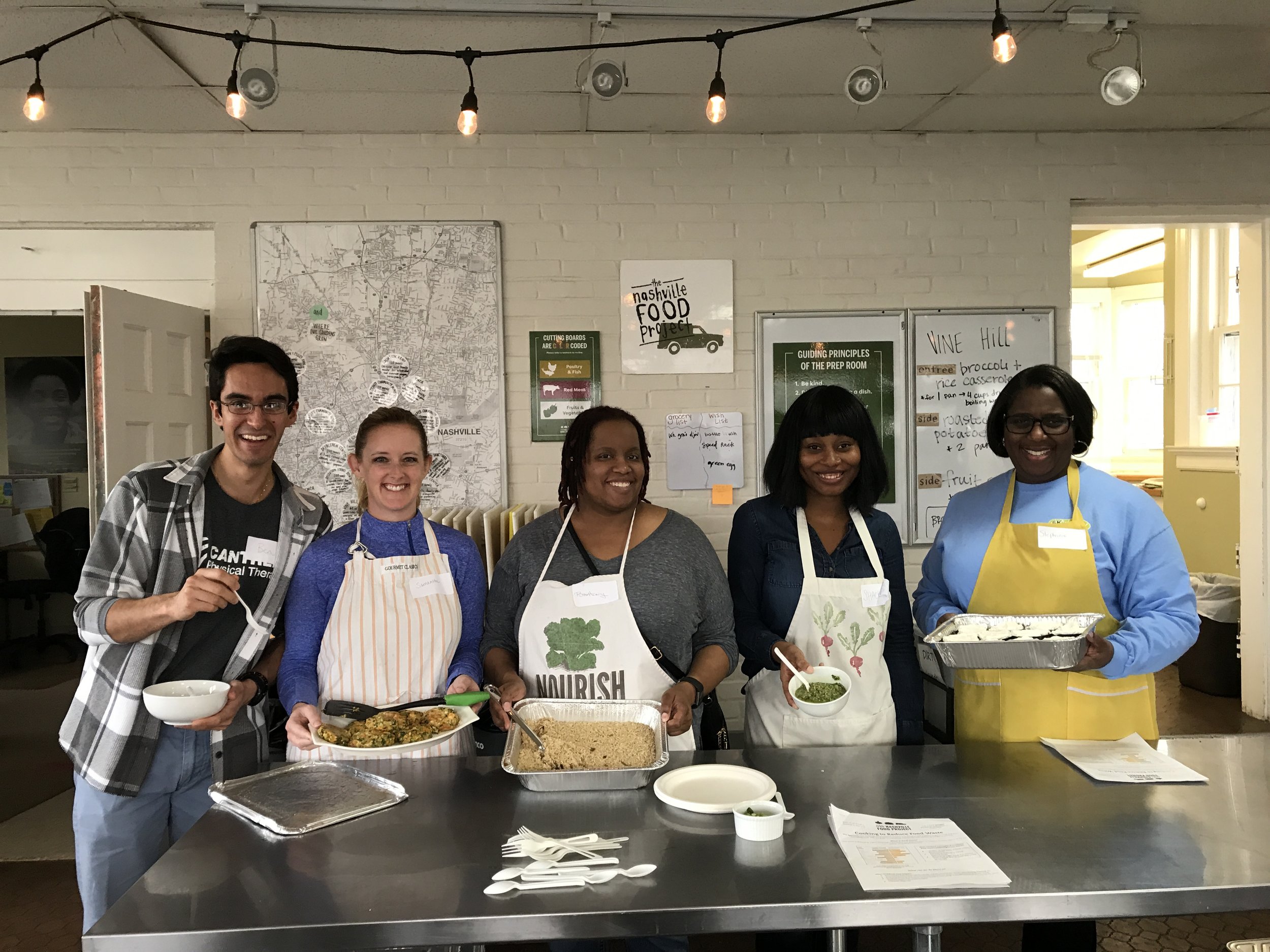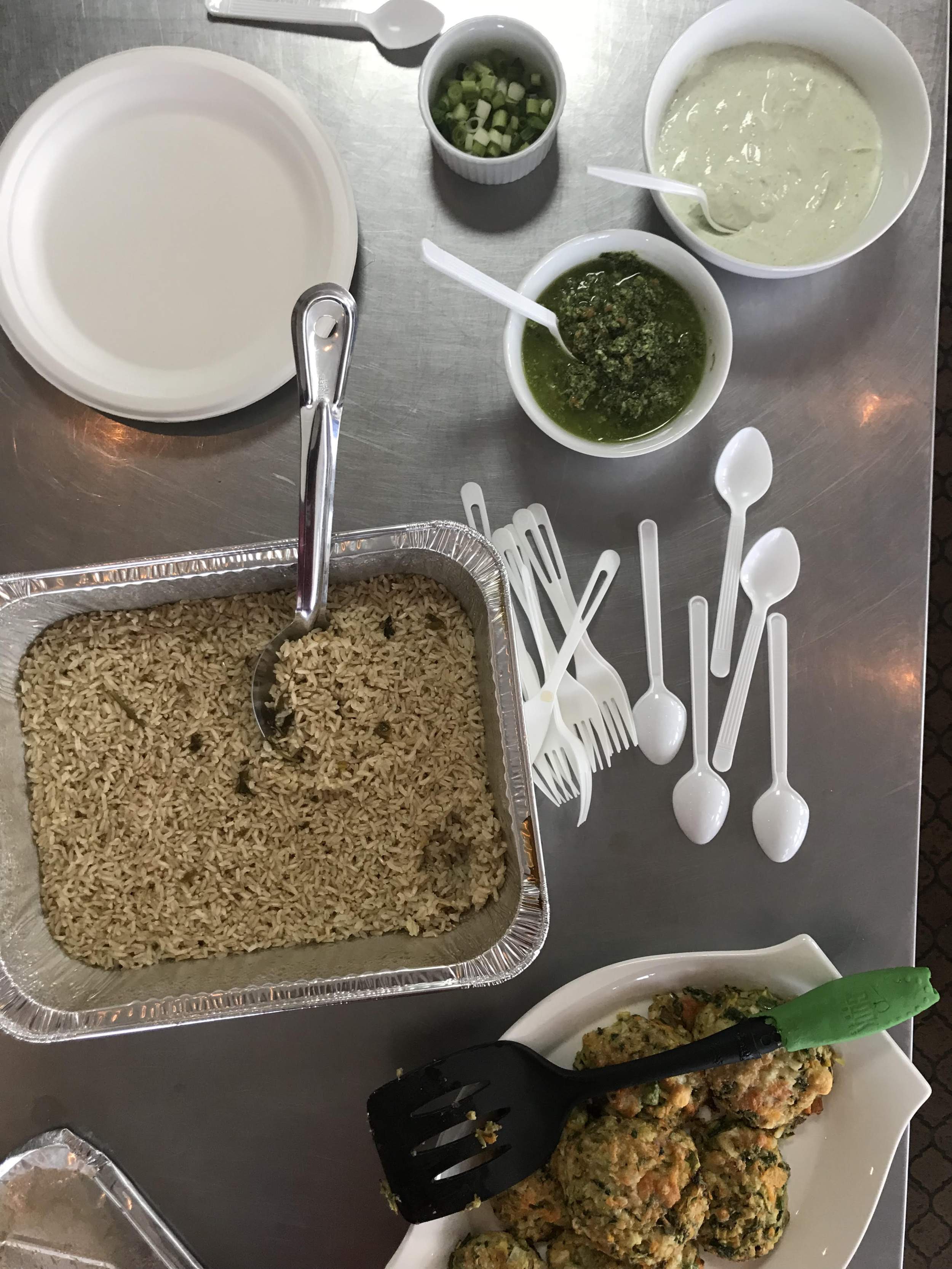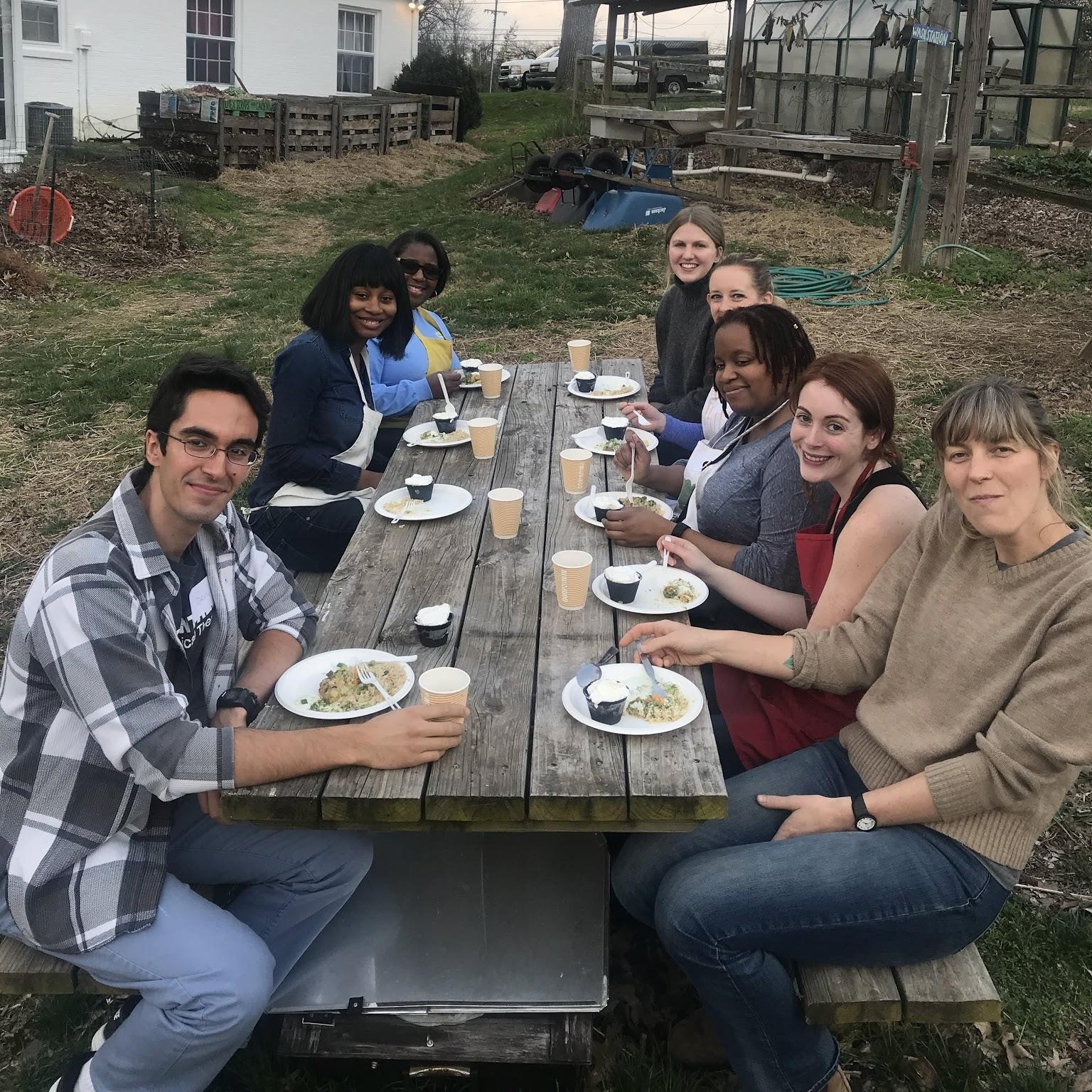Reflection by TNFP's Meals Director, Christa Ross
If you’ve been following along with The Nashville Public Library (NPL)’s Nashville READS Program this year you’re likely well into The Potlikker Papers: A Food History of the Modern South by John T. Edge. He tells the stories of our history through food, with meals borrowing heavily from old Southern traditions, sorghum and soybeans. This book strums at my heartstrings as it walks through the many ways that food has touched the history of the South. He dives into difficult topics, discussing them as he circles around the pots of greens and pans of cornbread that fed the people fighting for change. As a native Nashvillian, these stories feel close to home. What I love best about this book, though, is it’s acknowledgement that the story of food is the story of people: a true history cannot exclude food. People and food are inextricably linked in the past, present, and future.
This year, as NPL showcases The Potlikker Papers, we have partnered with them to facilitate two cooking classes on how to decrease food waste in the kitchen, a topic that is near and dear to our hearts. These classes are centered around decreasing personal food waste in our homes, which for us means changing the way we think in the kitchen. As they meal prep, our volunteers watch the influx of thousands of pounds of donated food come into our kitchens. We never know what’s going to be donated next and in order to be the best stewards of the incredible abundance we receive daily, creativity is key.
Common examples of avoidable food waste that we focused on with our menu are “scraps” or parts of food usually thrown away, expired or nearly expired foods, and “ugly” foods. According to the NRDC, “American families throw out approximately 25 percent of the food and beverages they buy. The cost estimate for the average family of four is $1,365 to $2,275 annually.” With 40 percent of all food going to waste in the United States, these household numbers contribute a huge portion to the total amount of food wasted. So when we created the menus for these classes, we focused on food that might typically be wasted in a home kitchen.
The feast:
- Vegetable scrap fritters (recipe here!)
- Yogurt sauce
- Rice cooked in veggie scraps & parmesan rind stock
- Carrot top pesto
- Apple peel tea
- Banana ice cream
We made the vegetable friters using scraps saved throughout the week at TNFP (broccoli stems, carrot peelings, zucchini ribbons, etc). This went along with a yogurt sauce for dipping made from soon-to-be-expired yogurt, garlic, green onion tops, and salt.
One of our favorite tips for decreasing food waste is stock! For this class we added onions, carrots, turnips (my personal favorite addition for an extra flavorful stock), celery, and garlic. For the last 15 minutes of cooking we added some parsley stems and a parmesan rind from a recently finished block. Cooking rice or pasta in this flavorful stock adds incredible depth and flavor to the base of your meal as well as lots of nutritional value.
We topped the vegetable fritters with carrot top pesto, another of our favorite food waste tips. We like to make “pesto” with any combination of greens and nuts, often using up greens that are past their prime. Our no fail ratio for pesto is 1 cup chopped and packed greens, ¼ cup toasted nuts or seeds (favorites include almonds, walnuts, pepitas & pine nuts), 1 clove garlic, 1 T. lemon juice, ½ cup EVOO & salt to taste.
To drink we made apple peel tea, boiling the scraps with ginger and cinnamon, and is great hot or cold. Dessert was a decadent banana ice cream, one of our favorite ways to use bananas that have turned brown.
I can honestly say that being a part of this class was an incredible affirmation of our mission. Everyone in the class came together as strangers to learn. As we began to cook the class came alive; we laughed, discussed favorite foods and kitchen tricks.
At the end of the class, as we sat down together to enjoy the meal, I circled back to some of Edge’s final thoughts in The Potlikker Papers. “New peoples and new foods and new stories are making their marks on the region. What was once a region of black and white, locked in a struggle for power, has become a society of many hues and many hometowns…” Our meals tell many stories, of the farmer’s who grew the food, of the volunteers who spent hours chopping and cooking, of waste diverted, and hungry mouths fed. A new kind of southern food comes out of our kitchens, paying homage to the land & served to the people, all people, whose stories are written in its history. And after all, a shared experience makes a shared meal that much more meaningful!
We would love for you to join us for our second FREE class on April 18th at 5:30. To attend please email Malinda@thenashvillefoodproject.org to sign up and learn more!




